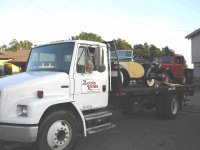Sport utility buyers tend to be more restless, more sybaritic, less social people who are ''self-oriented,'' to use the automakers' words, and who have strong conscious or subconscious fears of crime....Such psychological factors play a bigger role in the dividing line between minivan and sport utility customers than in the division between any other segments of the auto market, he added.
...'S.U.V. owners want to be more like, 'I'm in control of the people around me.' '' This is an important reason why seats are mounted higher in sport utilities than in minivans, he said.
Sport utility buyers are much more concerned with their vehicles' external appearance...''The people who buy S.U.V.'s are in many cases buying the outside first and then the inside,'' he said. ''They are buying the image of the S.U.V. first, and then the functionality.''
Dr. Rapaille looks at the intellectual, emotional and ''reptilian,'' or instinctual, reasons why people buy consumer products. He said sport utilities are designed to be masculine and assertive, often with hoods that resemble those on 18-wheel trucks, vertical metal slats across the grilles to give the appearance of a jungle cat's teeth and flared wheel wells and fenders that suggest the bulging muscles in a clenched jaw.
Sport utilities are designed to appeal to Americans' deepest fears of violence and crime, Dr. Rapaille said. People's earliest associations with sport utilities are wartime Jeeps with machine guns mounted on the back, he explained. Sport utilities are ''weapons'' and ''armored cars for the battlefield,'' he said.

